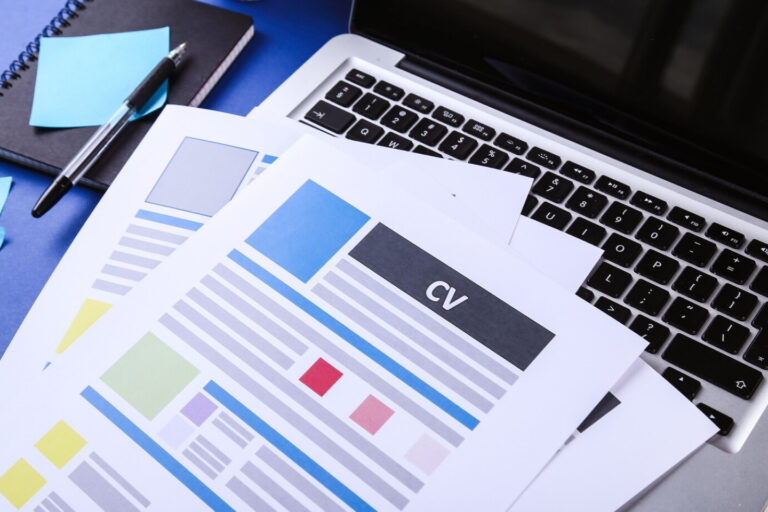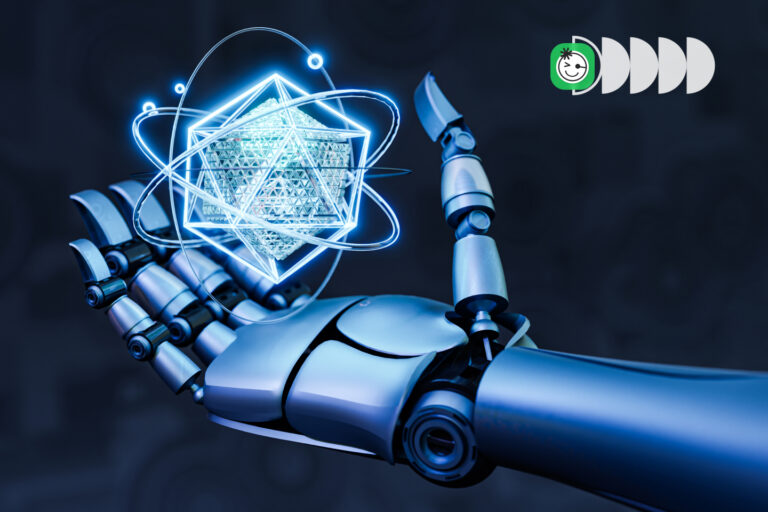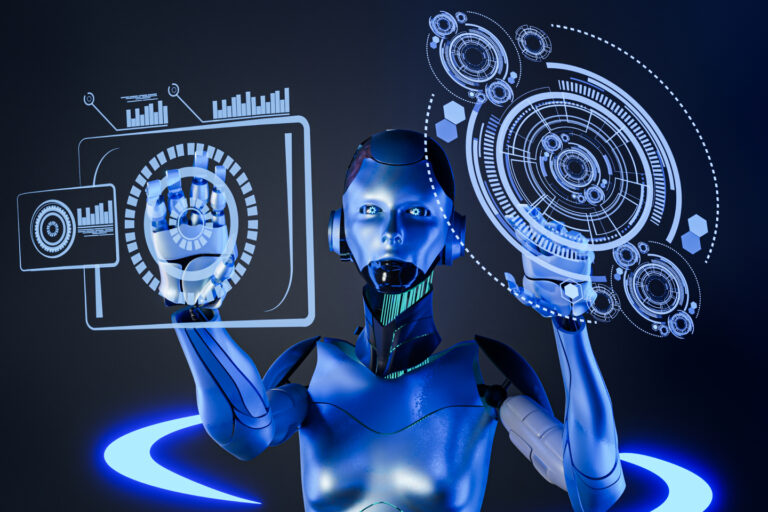The Pros and Cons of AI in the Workplace: A Balanced Perspective
Navigating AI’s Role in the Modern Workplace
Artificial intelligence (AI) has steadily woven itself into nearly every aspect of our professional lives, from automating mundane tasks to revolutionizing how we apply for jobs. In the workplace, AI tools are celebrated for their efficiency, helping streamline processes like data analysis, recruitment, and even decision-making. Job seekers, too, are embracing AI for job applications, with platforms now capable of filling out forms, tailoring resumes, and identifying matching roles at lightning speed.
But as we lean more heavily on these technologies, it’s important to ask: What are the pros and cons of AI in the workplace? While AI opens doors to innovation and efficiency, it also brings challenges that businesses and job seekers alike must consider.
This article dives into the pros and cons of artificial intelligence in the workplace, focusing on how it impacts job applications, recruitment, and overall workplace dynamics. Whether you’re curious about the positives of AI or cautious about the cons of using AI, we’ll provide a balanced view to help you make informed decisions.
Ready to explore the good, the bad, and everything in between? Let’s break it down!
Pros of Using AI for Job Applications
The rise of AI in the workplace has significantly transformed how job seekers navigate the application process. Let’s start with the upside — here are some of the standout positives of AI when it comes to job hunting.
Efficiency and Speed
One of the most celebrated benefits of using AI for job applications is how it eliminates time-consuming tasks. Imagine the hours spent tailoring your resume or crafting the unique cover letter for each role. With tools like AI job application tools, these tasks can now be automated, allowing you to focus on preparing for interviews or building new skills. AI algorithms can even scan through job descriptions, highlight essential keywords, and ensure your application aligns with specific criteria.
Personalization
Gone are the days of generic job boards that overwhelm you with irrelevant listings. Modern AI for job application platforms analyze your skills, experience, and preferences to suggest roles tailored just for you. This level of personalization ensures that you’re applying to jobs that truly match your capabilities, giving you a better shot at landing the perfect role. It’s like having a career coach who knows you better than you know yourself.
Accessibility
For many, the job search process can feel daunting, especially for those unfamiliar with professional norms or the intricacies of applications. Job application AI simplifies these hurdles by guiding users step-by-step, making the process less intimidating. Additionally, tools that use AI to fill out job applications ensure every detail is accounted for, reducing the chance of errors and omissions.
Cost-effectiveness
Hiring a professional recruiter or career consultant can be expensive. In comparison, AI job application tools offer a much more affordable alternative. These tools provide many of the same benefits — like resume optimization and tailored job recommendations — at a fraction of the cost. This makes AI an accessible option for job seekers across different budgets, leveling the playing field for everyone.
Cons of Using AI for Job Applications
Let’s be real — AI isn’t perfect. While it’s a game-changer in many ways, there are definitely a few downsides that we need to talk about. From over-reliance on tech to concerns about privacy, it’s not all smooth sailing. Here’s a closer look at some of the cons of using AI in job applications and what they might mean for job seekers like you.
Over-reliance on Technology
One of the biggest negatives of AI in the workplace is the risk of losing the human touch. When job seekers depend heavily on AI to create resumes and cover letters or even select jobs to apply for, there’s a chance their applications could feel robotic. Recruiters often value personal connections, unique anecdotes, or a distinctive writing style — things that may not come through in an AI-generated application. Relying solely on job application AI can make it harder to stand out in a sea of candidates.
Bias and Fairness Issues
Though AI is designed to be neutral, it’s only as unbiased as the data it’s trained on. Unfortunately, some AI tools risk perpetuating systemic biases, unintentionally filtering out qualified candidates based on criteria like gender, ethnicity, or even age. These disadvantages of AI in recruitment can have serious implications, making it crucial for companies to use ethical AI solutions and continually review their algorithms.
Privacy Concerns
Using AI to fill out job applications often involves sharing personal information — like your resume, employment history, or even behavioral data. This raises legitimate concerns about how securely that data is stored and whether it could be shared without your consent. For job seekers, understanding the privacy policies of any AI job application tool is essential to safeguard sensitive information.
Limited Creativity
Another challenge is the risk of applications becoming too formulaic. While AI tools excel at optimization, they often lack the creativity or emotional nuance that human-written applications can bring. A hiring manager might notice when a cover letter feels generic or fails to capture the essence of an applicant’s personality. For job seekers, striking a balance between AI-generated applications and their personal input is key to maintaining authenticity.
Best AI Tools for Job Applications
If you’re ready to embrace the power of AI for job applications, the next step is choosing the right tool. With so many options out there, it can feel a bit overwhelming — but don’t worry! We’ve rounded up some of the best AI tools to help you navigate your job search more effectively.
JobHire.AI
If you’re looking for an all-in-one solution, JobHire.AI is your go-to platform. From optimizing resumes to automating job applications and crafting tailored cover letters, it handles everything with impressive accuracy. What truly sets JobHire.AI apart is its ability to analyze job descriptions, personalize applications, and even adjust its processes to meet your specific needs. For busy professionals or anyone navigating a demanding job market, JobHire.AI is a game-changer that saves you time while boosting your chances of landing interviews.
Jobscan
Jobscan is another powerful tool, primarily focused on optimizing resumes for Applicant Tracking Systems (ATS). It provides detailed feedback on how your resume matches up with a specific job description, making it a solid choice for those prioritizing ATS compatibility. However, it lacks the broader functionality of JobHire.AI, such as automating applications and crafting personalized cover letters.
ResumAI
ResumAI shines when it comes to building ATS-friendly resumes quickly. With customizable templates and simple usability, it’s perfect for creating polished resumes. That said, it doesn’t offer the comprehensive features that JobHire.AI provides, like job matching or application automation.
ChatGPT
ChatGPT is a versatile AI tool that can assist with drafting resumes and cover letters. While it’s a great budget-friendly option, it requires more manual input and editing compared to specialized platforms like JobHire.AI.
Why JobHire.AI is the Best Option
While other tools are great for specific tasks, JobHire.AI stands out as the most comprehensive and efficient platform for job seekers. It’s not just an AI job application tool — it’s your personal assistant, handling the complexities of job searching so you can focus on showcasing your skills and preparing for interviews.

Balancing AI with Human Input
While AI tools are fantastic for boosting efficiency and accuracy, it’s essential to remember that they’re just that — tools. To truly stand out in a competitive job market, blending AI-generated applications with a personal touch is the winning strategy. Here are some tips to ensure that AI works with you, not instead of you.
Add Your Unique Voice
AI can help craft polished resumes and cover letters, but it doesn’t know your personal story or what makes you unique. After generating a draft, take the time to review and tweak the content. Highlight specific achievements, anecdotes, or details that align with the company culture and role you’re applying for. This helps your application feel authentic and tailored, not cookie-cutter.
Use AI for the Heavy Lifting
Let job application AI handle time-consuming tasks like formatting, optimizing keywords, or ensuring ATS compatibility. Then, focus your energy on personalizing the finer details. For instance, add a sentence or two in your cover letter explaining why you’re passionate about the role or the company.
Research and Align
AI tools are great at generating applications, but they can’t replicate in-depth research. Dive into the job description and company values yourself to ensure your application reflects what the employer is looking for. Combine this knowledge with AI’s efficiency to create a truly standout submission.
Review, Review, Review
Even the best AI for job applications can make mistakes. AI might misinterpret context or overlook small but important details. Always proofread and edit the final product to make sure it’s error-free, accurate, and aligned with your voice.
Know When to Step In
AI is perfect for streamlining processes, but there are parts of the job search where your input is irreplaceable — like networking, interview preparation, and building rapport with recruiters. These human-centric efforts can’t be replicated by AI, so don’t skip them!
By blending the efficiency of AI job application tools with your personal input, you’ll get the best of both worlds: polished, professional applications that also showcase your individuality. Think of AI as your trusted sidekick — it’ll handle the groundwork while you focus on making a memorable impression.
Striking the Right Balance with AI in the Workplace
AI has undeniably transformed the way we approach job applications and workplace tasks. On the upside, AI job application tools bring efficiency, personalization, accessibility, and cost-effectiveness to the table. They simplify complex processes, saving time and effort for job seekers and employers alike.
However, it’s equally important to recognize the challenges. From concerns about over-reliance and limited creativity to issues of bias and privacy, the cons of artificial intelligence in the workplace remind us that no tool is without its limitations.
The key lies in balance — embracing the positives of AI while staying mindful of its drawbacks. Use AI to handle the heavy lifting, but don’t forget to add your unique voice and personal touch. Remember, AI is a tool, not a replacement for the creativity and individuality that only you can bring to the table.If you’re curious about how AI can enhance your job search, platforms like JobHire.AI are a great starting point. They make the process easier and more efficient, while leaving room for your input where it matters most. So why not give it a try? The future of work is here — are you ready to make it work for you?







